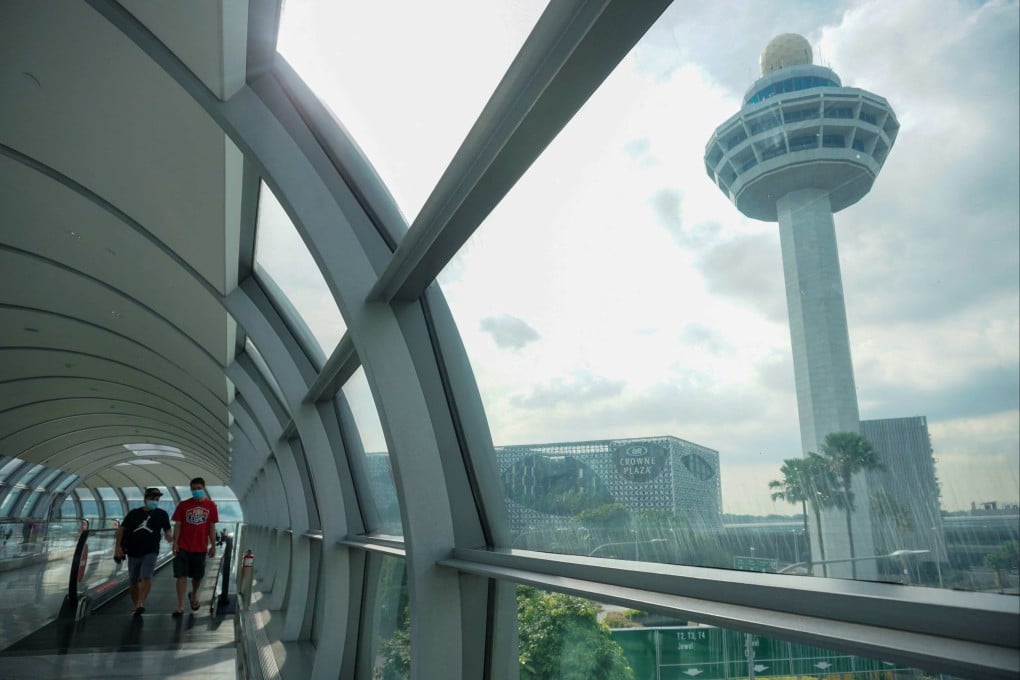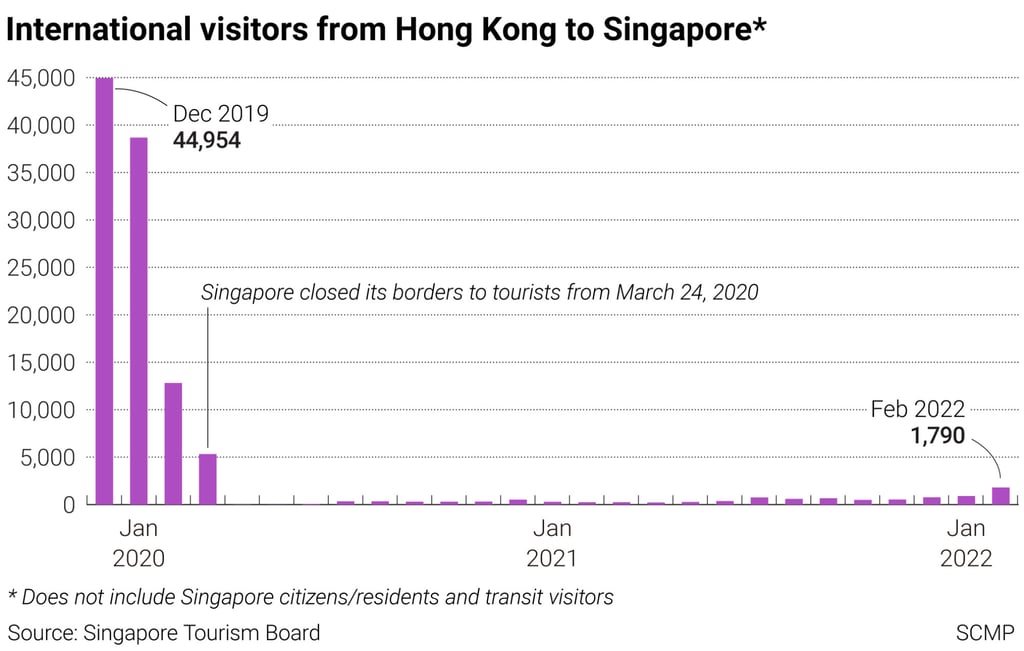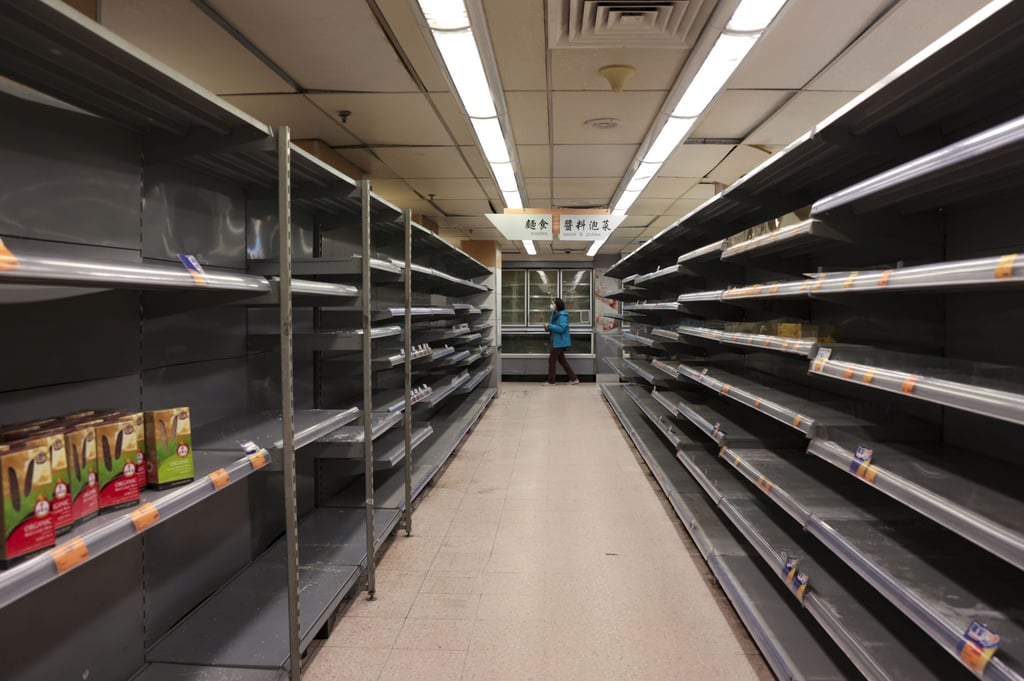Hong Kong exodus pushes Singapore’s monthly foreign visitor arrivals from city to 2-year high
- The number of foreigners entering Singapore from Hong Kong was 1,790 in February, almost double January’s figure, and the highest since April 2020
- Hong Kong’s chaotic handling of pandemic has led to many seeking boltholes to escape mass testing and family separation when children test positive for Covid-19

The 1,790 foreigners arriving into Singapore from Hong Kong last month is still a far cry from pre-pandemic numbers – there were 44,954 such visitors in December 2019 – but it is a two-year high. It is the first time the number, that does not include Singaporeans, permanent residents and transit arrivals, crossed four digits since April 2020 after Singapore shut its borders to travellers at the end of March that year.

STB data showed visitors from Hong Kong this year were staying an average of 19.6 days compared to the 3.11 days in pre-pandemic 2019. On social media, Hong Kong residents have been sharing tips and advice on how to maximise their visas for Singapore and what sort of accommodation would be more affordable for longer stays.

Schools have cancelled in-person classes for students until April 17, and coupled with panic buying that has left supermarket shelves bare, both families and individuals have decided to pack up and leave – even for the short term. They will face hotel quarantine upon returning – the requirement is currently for a 14-day stay.